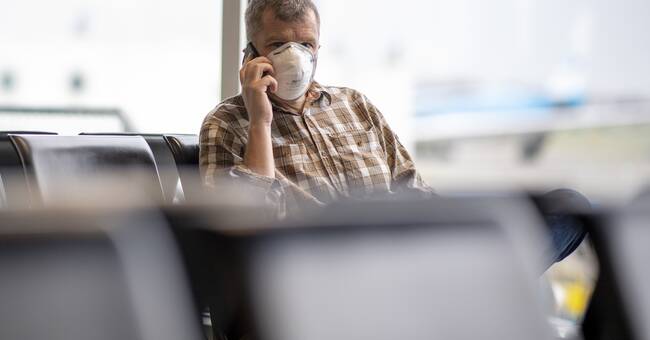The car can be both the safest and most unsafe option, depending on whether you travel alone or with more people.
- The most important thing to keep in mind is air ventilation.
Cars do not have a filtration system and it is difficult to keep distance.
If you travel for a longer period, there is therefore a great risk of becoming infected if someone is infected in the car, says Staffan Normark, professor of medical microbiology at Karolinska Institutet.
Flight
Most flights use HEPA filters, which means that 99 percent of all air is filtered.
But if you are unlucky, you can still be infected.
A study published in Eurosurveillance reports a case where 13 passengers on a seven-hour flight to Ireland were infected immediately after traveling with a person who was ill with covid-19.
- The infected person was probably a so-called super-spreader.
The risk of becoming infected increases the longer we sit together.
The filters are safe, but there can be an infection before the air has reached there, says Staffan Normark.
Bus and train
The air exchange in buses and trains varies.
Trains and long-distance buses use purification filters that are ranked on a so-called MERV scale that measures how many particles the filter manages to filter from 0 to 20, where 20 is best.
On SJ trains, the air is changed every two to eight minutes.
Their X2 trains use filters that rank between 5 and 8 on the MERV scale.
HEPA filters that rank between 17 and 20 can be compared.
A study that examined a bus trip in China shows that one passenger infected one third of all passengers in one hour and 40 minutes.
Therefore, the risk of infection can be high if there is no purification filter and the air is recirculated.
Swedish long-distance buses usually use filters as efficiently as trains.
Buses in SL's public transport do not catch virus particles but take in air from outside.
- You can not tell the difference between bus and train.
It all depends on how quickly the air is replaced.
The major outbreaks in means of communication have been long journeys.
It has not been linked to people sitting next to each other but to the air system, says Staffan Normark.
Mouth protection and distance
If you have to travel, it is especially important to remember the recommendations.
- Right now the spread of infection looks very bad.
If you choose to travel, there is a high risk that you will travel with someone who is infected and has no symptoms.
Mouthguards can reduce the risk somewhat, says Staffan Normark.

